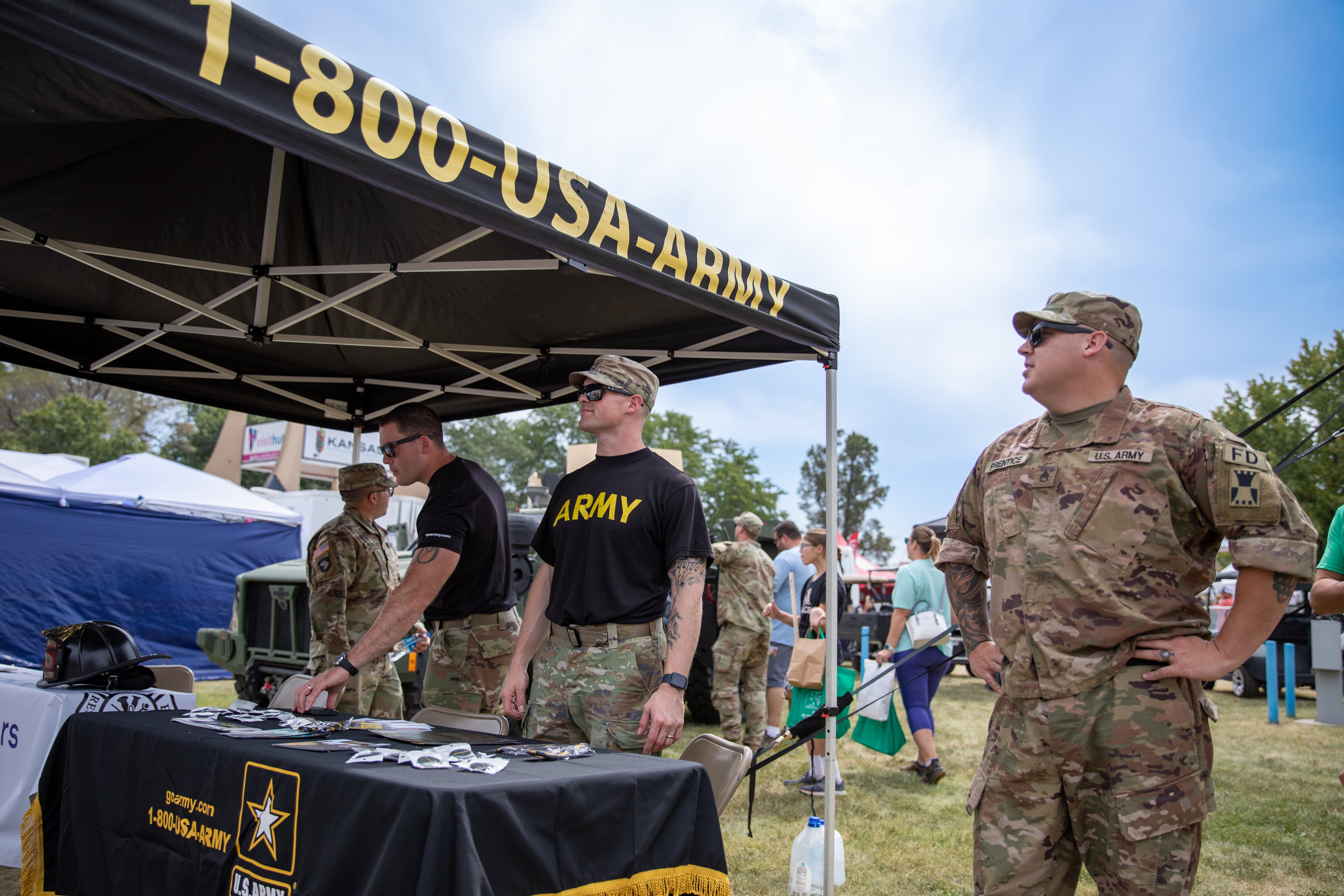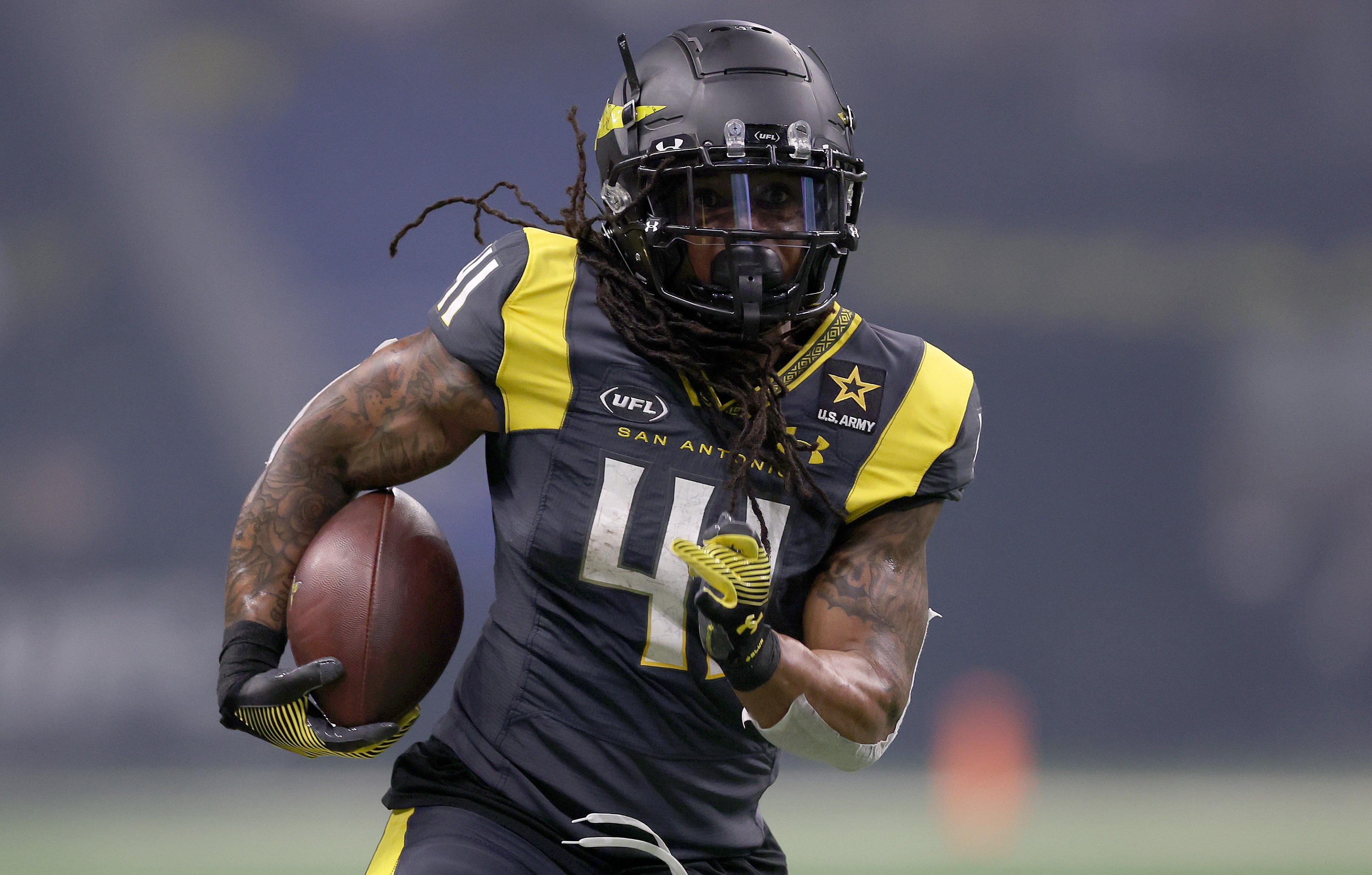The Army announced it is partnering with the United Football League, a budding alternative to the National Football League, as the service looks to score a touchdown on recruitment after fumbling to reach its goals in recent years.
The UFL, formed from a merger of the United States Football League and the XFL, kicked off its inaugural season in March. With eight teams spanning from San Antonio, Texas, to Detroit, Michigan, the two conferences of footballers are set to play a 10-game regular season.
Under the sponsorship, an Army logo will be featured on all game-day jerseys and at the 50-yard line, according to a statement earlier this month from the league. Recruiters will also be present at various games, Col. Dave Butler, an Army spokesman, told Military Times.
“This deal was initially met with a good deal of skepticism. Over the past 15 months we’ve decreased the cost and increased the value to the Army,” Butler said.
“Like the Army’s other high-profile, national partnerships, the UFL partnership allows the Army to engage with a wider audience on different platforms for Americans to learn about the possibilities of Army service,” Laura DeFrancisco, from the Army’s corporate marketing office, told Military Times in a statement.
As the Army seeks to reach the end zone on its end-strength numbers, officials and leaders recognize the young spring sports league could provide an opportunity to attract potential soldiers.
The current one-year deal, worth around $9 million, a person familiar with the matter told Military Times, will offer the Army a regular chance to cast its message across a wide net thanks to broadcast partners like Fox and Disney.
“Our reach is pretty broad,” Russ Brandon, UFL’s president and CEO, told Military Times.
RELATED

The military is no stranger to striking deals in the sports world to appeal to possible newcomers about the benefits and value of service. But it has also faced challenges in past endeavors, including last year when the arrest of actor Jonathan Majors — star of the revived “Be all you can be” campaign — prompted the Army to refresh its ads ahead of the final games of the NCAA men’s basketball tournament, known as March Madness.
A study released in November by Rand recommended an 80% increase in spending on television advertising for the Army, finding that the expenditure is relatively more cost-effective than offering bonuses.
Update: This story was updated after publication with a statement from Col. Dave Butler, an Army spokesman.
Jonathan is a staff writer and editor of the Early Bird Brief newsletter for Military Times. Follow him on Twitter @lehrfeld_media




